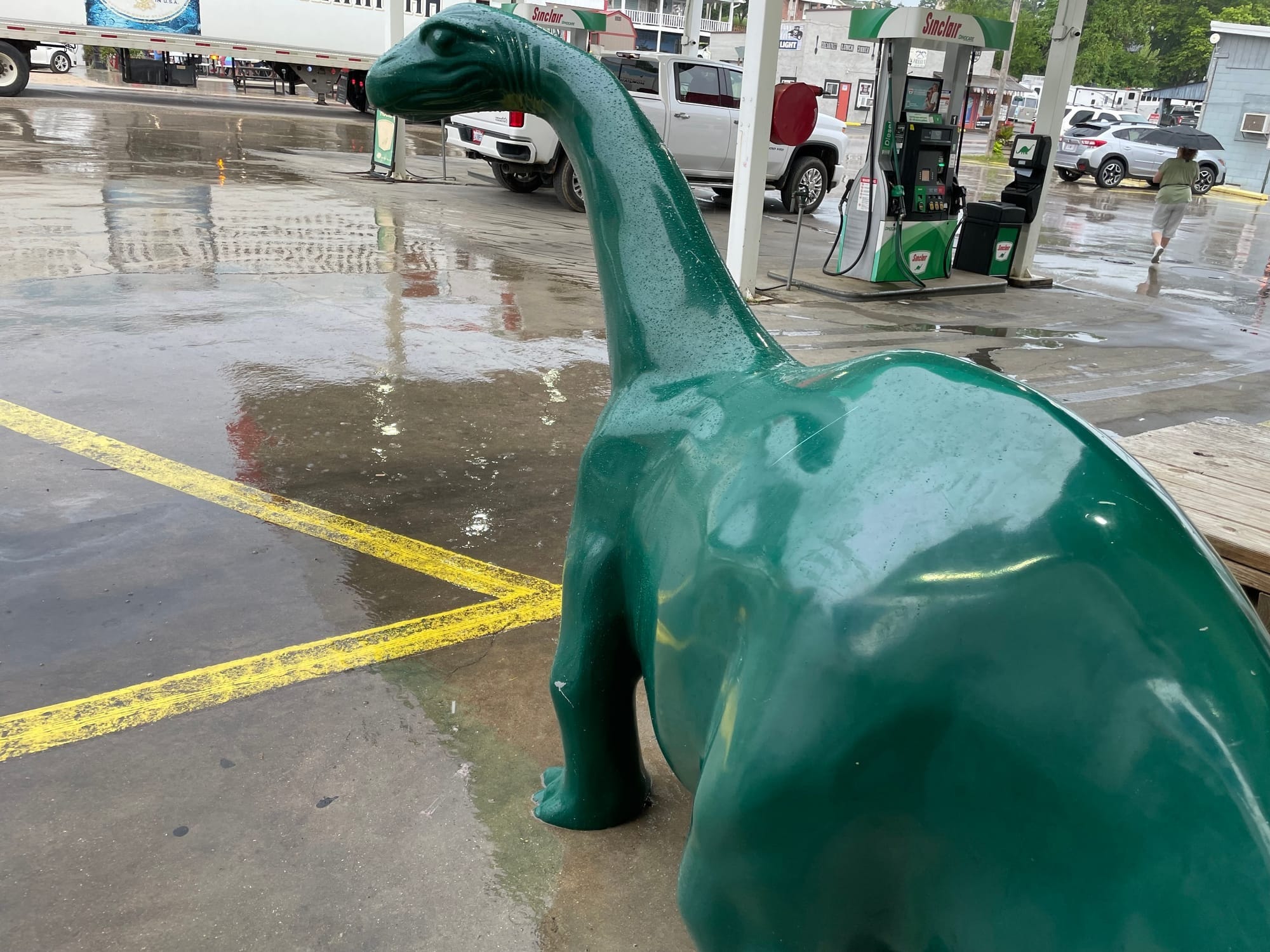It's hard to pick out many bright spots in this week's news. Donald Trump has continued to use his office to manipulate the stock market, squeezing over $6 trillion from ordinary investors, while generating billions for his insider pals and the national media seems disinterested in the story.
Say, remember when Congress spent almost two years investigating how Joe Biden loaned his son some money for a truck, and newspapers followed it every day? Good times ... no, seriously, those Biden years were good times.
But, should you need something to make you feel just a little warmer on a chilly Friday afternoon, you may be comforted to know that it's been a really, really bad week for Elon Musk.
Musk still sits comfortably at the top of Bloomberg's list of the world's wealthiest. However, his net worth has dropped an incomprehensible $121 billion since Trump took control. In fact, the whole trio of billionaires who sat at Trump's elbow on Inauguration Day have lost huge sums, with Jeff Bezos down $36 billion and Mark Zuckerberg losing $14 billion. Still, in both raw numbers and as a percentage of his overall wealth, no one has dropped as much as Musk.
That big fall is coming for a very good reason: People have finally been forced to look behind the curtain and even his most ardent fans have finally had to confess that the real Elon Musk doesn't live up to the hype. In the process of screwing everyone else, Musk has screwed himself.
And now he's facing a triple crisis that may make what's happened so far look like the fun part of 2025.
First, a group of Telsa shareholders is suing Musk and his hand-selected board for the way in which Musk extorted the company into handing him a bonus that was far larger than any CEO has received in the past.
As transportation site Electrek points out, Musk told shareholders that unless he got everything he wanted, he would stop developing AI at Tesla.
Musk had previously stated that Tesla would be a major player in AI and that AI products would be critical to Tesla’s future, but in early 2024, the CEO threatened not to build AI products at Tesla if he didn’t get more control over the company by getting more shares.
He also redirected NVIDIA AI hardware acquired by Tesla to xAI and hired Tesla employees to work at xAI.
Musk got his astounding $101 billion pay plan, but a judge has twice rejected this unheard-of compensation. Now shareholders are suing, justifiably, over the idea that a CEO could threaten his own company, steal company assets, and then get rewarded by a board that includes Musk's brother.
The board has responded by asking the judge to dismiss the suit, justifying their actions by saying: "Tesla has thrived under this board and CEO, delivering astronomical returns to stockholders while advancing its mission to create sustainable abundance for all.” However, not only is "chill out, because we all made money off this crime" not the best legal argument, but that statement leads right into crisis number two.
Tesla is in trouble. It's easy enough to see that the stock has fallen by more than a third since the start of the year and protests against the company have spread around the world. But it's more than that.
Musk's signature Cybertruck has become an avatar for his plummet. The angular vehicles are piling up on storage lots. After once bragging that there were more than a million reservations for the truck, it has become the auto industry's biggest flop in decades. Only 6,406 have been sold since the first of the year as Musk has done everything possible to make the "Swastikar" absolutely toxic.
It also doesn't help that the delivered vehicle is nothing at all like the super-tough, hyper-capable vehicle that Musk promised when the Cybertruck was first demoed. In retrospect, the cracks that appeared in the truck's "unbreakable" glass that day might have been the ultimate expression of things to come.
Musk devoted a huge area of Tesla's Texas "gigafactory" to the production of Cybertruck. Producing it required the purchase and installation of enormous specialized equipment that's really not good for making anything else.
The CEO who the board is defending as causing Tesla to "thrive" not only stole from the company, he made a massive bet on the biggest automotive disaster since the Edsel. Now the company is stuck with a growing stack of Cybertruck inventory and a $10 billion factory that's largely dedicated to stamping out more unwanted metal wedges. Maybe they can just bury them in the desert next to all those old video game cartridges.
The utter failure of Cybertruck may be the kind of disaster that would be enough to get see any other CEO sent packing, but it's not the big story. For years, Tesla's real money maker has been the Model Y crossover. At times, it has been the best-selling vehicle in the world and Telsa makes them in Texas, California, China, and Germany just to keep up with what had been an ever-growing demand.
In late 2024, Tesla began switching over those factories to produce an upgraded version of the Model Y and it has been blaming lower-than-expected deliveries on the pause necessary to bring the new model up to speed. Tesla was so confident that the revised Model Y would be a hit that they issued a special "Launch Series" at a price $11,000 higher than the standard car.
But that Launch Edition didn't last long. Tesla is already cranking out cheaper Model Ys. And those models ... are already piling up in inventory just 4 days after they became available.
The usual areas of Tesla's site that show vehicles in inventory have been disabled. However, where in the past buyers have faced months between ordering and delivery, those signing up for a Model Y in April are finding that they can pick up their vehicle right away. That's a very good indicator that both factory and distribution lots are overloaded with unwanted Model Ys. As Fred Lambert at Electrek notes:
This is much worse than I thought. I thought that Tesla would build a backlog of demand for the new Model Y in the US from people who didn’t want the fully loaded version, but it looks like that backlog lasted 4 days.
Of course, it’s all because of Tesla and Elon, and brand destruction.
Here's hoping those Tesla shareholders clip those comments for the judge.
Tesla is facing a quarterly earnings report on April 22. Despite the big drop in deliveries, Wall Street is still expecting a profit of about $0.40 per share and an earnings per share of $2.19. If Tesla fails to meet that expectation things are going to get even uglier for TSLA shares (and Musk's wealth).
Still, even if Telsa sinks back to the price/earning ratio of other automakers—which would see the stock trading for about $12–Musk still has principal ownership of what's largely considered the most valuable private company in history: SpaceX.
That's where crisis #3 comes in.
Fueled by its dominance of the launch industry and the ever-growing power of Starlink, SpaceX seems unstoppable. The workhorse Falcon 9 could soon be supplanted by the enormous-but-cheap Starship, giving SpaceX even more of a lead. And Starlink looks to be an endless source of growing subscription-based revenue.
Nothing could go wrong ... except for how Musk's actions threaten to make SpaceX, and Starlink into an international pariah, destroying its value as thoroughly as he has crushed that of Tesla. And there are technical challenges implicit in Starlink that may keep it from ever meeting the company's optimistic predictions.
As Forbes reports, those still pushing SpaceX are starting to encounter headwinds.
Those bullish vibes ignore some of the hard ceilings Starlink faces. Its satellites simply aren’t capable of serving many internet customers in densely populated areas, and in rural regions the population that can afford to pay its high prices is limited. ... Meanwhile, competing services are on the launchpad, including from rival billionaire Jeff Bezos’ Amazon.
In short, Starlink's primary market is in rural areas where no other service is available, but that market is becoming saturated. If Starship enables SpaceX to launch the larger Starlink 2.0 satellites then it may be able to extend service into more built-up areas, but it would face competition from ground-based services that are already available at a lower cost.
Starlink could be forced to cut costs significantly to continue growth, and its first-mover advantage is soon to be undercut by competing services, including Amazon's Kuiper. (Which is a good reason that Musk may lean on Trump to destroy Kuiper before it becomes viable).
The biggest threat to Starlink isn't technical. It's Muskical. Musk has already demonstrated that he's willing to manipulate the service, such as turning off Starlink to thwart a Ukrainian strike against Russian invaders. That's enough to make most defense agencies look elsewhere. Consumers also understand that Starlink = Musk, and just as Tesla's numbers suddenly took a tumble, the same thing could happen with Starlink.
Starlink also risks losing billions in business internationally amid blowback over Musk’s ties to Trump and the administration’s isolationist tack on defense and trade. In response to U.S. tariffs, the Canadian province of Ontario canceled a $68 million contract with Starlink to hook up remote homes and businesses to high-speed internet. Italy has halted talks on a potential $1.5 billion deal for secure government communications amid outrage over threats to cut off Ukraine’s access to Starlink.
None of this is going to put Musk out on the street. It's also not going to make his legion of fanboys think that he's anything short of a chainsaw-wielding god. Musk could lose another $100 billion and still be the richest person on the planet.
But every dollar that falls away is one that he can't use in subverting democracy. That's a good thing. No American should be afraid to cheer for the fiscal downfall of Elon Musk.
Just as Trump took the White House using the claim that he was a business genius, Musk has dominated multiple industries based on assumptions that he has some secret knowledge or management voodoo. Mythologies die hard, but every petty god falls in time.
Let's just hope it's time for Musk.













Comments
We want Uncharted Blue to be a welcoming and progressive space.
Before commenting, make sure you've read our Community Guidelines.